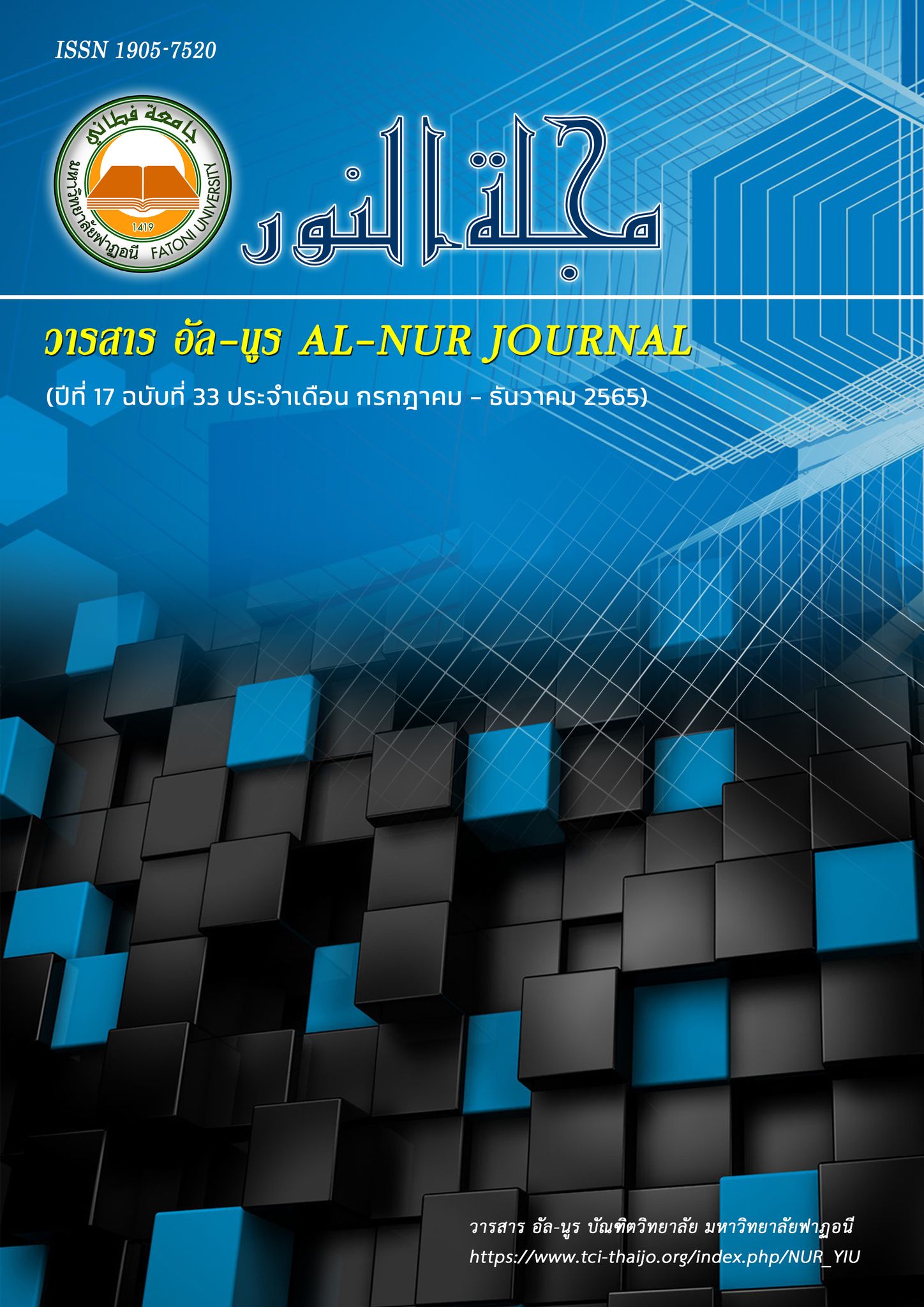วิถีการดา เนินชีวิตตามหลักปรัชญาเศรษฐกิจพอเพียงของผู้สูงอายุในชุมชนนาทับ อำเภอจะนะ จังหวัดสงขลา
Keywords:
Way Of Life, The Sufficiency Economy Philosophy, ElderlyAbstract
This research was aimed to study way of life according to the Sufficiency Economy Philosophy of the elderly in Natub community, Chana district, Songkhla province. Data were collected by using formal interview. The main informants consisted of 14 people who were community representatives and were purposely selected. They were community leaders, elderly or village health volunteers (VHV). The data which were recorded from the interview were arranged, analyzed and summarized. The research results revealed as follows: 1. On modesty. There was income planning, spending, and saving. Family spending was in a modest portion of the income and portion for saving. On consumer product purchasing decision, it was concentrated on quality with not very high prices and wisely used. 2. On reasoning. In decision making on spending, debt payment was primarily concentrated. Long term investments were on seeds and fruit trees which could give products in a long period. In making friends, they made friends with those who were sincere and should help each others. 3. On self-immunity. There was career planning, children’s future planning, as well as financial planning. Religious principles were followed in their way of lives as well as in future practice. They were honest, conscientious and live under the Sufficiency Economy Philosophy.
References
กรมพัฒนาที่ดิน. (2561). ปรัชญาเศรษฐกิจพอเพียง. สืบค้นเมื่อ มกราคม 2561, จาก http://www.ldd.go.th/Web LDDEconomy/LDDEconomy.html
จรัส พยัคฆราชศักดิ์ และกวี อิศริวรรณ. (2544). หนังสือเรียนพระพุทธศาสนาชั้นมัธยมศึกษาปีที่ 1. กรุงเทพฯ : วัฒนาพานิช.
ชมพูนุท พรหมภักดิ์. (2556). การเข้าสู่สังคมผู้สูงอายุของประเทศไทย (Aging society in Thailand). บทความวิชาการ การเข้าสู่สังคมผู้สูงอายุของประเทศไทย (Aging society in Thailand), 3(16),. 1. สืบค้นเมื่อ ธันวาคม 2561, จาก http://library.senate.go.th/ document/ Ext6078/6078440_0002.PDF
ธีรวี ทองเจือ และปรีดี ทุมเมฆ. (2560). “แนวทางการพัฒนาทรัพยากรมนุษย์ในศตวรรษที่ 21 : มิติด้านการศึกษา,” วารสารสันติศึกษาปริทรรศน์ มจร. 5 (3), 394. https://so03.tci-thaijo.org/index.php/ journal-peace/article/download/93420/83874/
ประชา ตันเสนีย์. (2553). การพัฒนาทรัพยากรมนุษย์. สืบค้นเมื่อ มกราคม 2561, จาก https://www.gotoknow.Org /posts/360745
พรนิดา จันทร์น้อย. (2552). “การดำเนินชีวิตกับเศรษฐกิจพอเพียง,” Feu Academic Review. 2 (2), 5.
พระมงคลธรรมวิธาน และประสิทธิ์ สระทอง. (2560). “ผู้สูงอายุกับการปฏิบัติตามหลักพุทธธรรม,” Veridian E-Journal Silpakorn University. 10 (3), 1853-1854. https://he02.tci-thaijo.org/index.php/Veridian-E-Journal/ article/view/110233/86476
พิสมัย นุรักษ์. (2559). “การดำเนินชีวิตตามหลักปรัชญาเศรษฐกิจพอเพียงในชุมชนขององค์การบริหารส่วนตำบล เขตพื้นที่อำเภอท่าฉาง จังหวัดสุราษฎร์ธานี,” Journal of Nakhonratchasima College. 2559 (10), 157.
มณีรัตน์ กุลวงษ์, วัชรินทร์ อินทพรหม, เตชิตตรีชัย, และสิริกร ฉัตรภูติ. (2559, มกราคม - มิถุนายน). “รูปแบบการพึ่งตนเองตามหลักปรัชญาของเศรษฐกิจพอเพียงของผู้สูงอายุ ในเขตเทศบาลตำบลพุเตย อำเภอวิเชียรบุรี จังหวัดเพชรบูรณ์,” วารสารวิจัยราชภัฏพระนคร. สาขามนุษยศาสตร์และสังคมศาสตร์. 11(1): 167
รัชต์วรรณ ประเสริฐศรี. (2552). การนำปรัชญาเศรษฐกิจพอเพียงไปสู่การปฏิบัติในชุมชน : กรณีศึกษาชุมชนบางศรีเมือง อำเภอเมือง จังหวัดนนทบุรี. วิทยานิพนธ์ ปริญญามหาบัณฑิต. กรุงเทพ ฯ : มหาวิทยาลัยราชภัฏสวนดุสิต.
รัฐพงศ์ บุญญานุวัตร. (2554). การนำแนวคิดปรัชญาเศรษฐกิจพอเพียงมาใช้ในการดำเนินชีวิตของประชาชนในชุมชนเขตดุสิต กรุงเทพมหานคร. ปริญญานิพนธ์ พ.ม.(การจัดการพัฒนาสังคม). กรุงเทพฯ: มหาวิทยาลัยราชภัฏสวนสุนันทา.
Downloads
Published
Issue
Section
License
Copyright (c) 2023 nungrudee kosee

This work is licensed under a Creative Commons Attribution-NonCommercial-NoDerivatives 4.0 International License.
Proposed Creative Commons Copyright Notices


